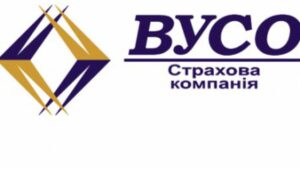
Consumer price growth in Ukraine slowed to 0.2% in December 2025 from 0.4% in November and 0.9% in October, the State Statistics Service (SSS) reported on Friday.
The statistics agency recalled that in December 2024, consumer price growth was 1.4%, so in annual terms, inflation at the end of December this year decreased to 8% from 9.3% at the end of November and 10.9% at the end of October, and was lower than inflation in 2024, which was 12%.
It is noted that in December 2025, core inflation also fell to 0.1% from 0.3% in November and 0.6% in October. Given that in December 2024 it was 1.3%, core inflation slowed down to 8% in annual terms at the end of the year, from 9.3% in November and 10.2% in October.
In the consumer market in December, prices for food and non-alcoholic beverages remained largely unchanged. At the same time, prices for eggs, grain products, fish and fish products, bread, sunflower oil, lard, vegetables, beef, and milk rose by 5.6–0.7%. At the same time, prices for fruit, sugar, poultry, pork, rice, fermented milk products, non-alcoholic beverages, and butter fell by 4.1–0.2%.
Prices for alcoholic beverages and tobacco products rose by 1.0%, which is associated with a 1.9% increase in the cost of tobacco products.
Clothing and footwear fell in price by 3.9%, in particular, footwear by 4.4% and clothing by 3.6%.
Transport prices rose by 0.7%, mainly due to a 1.3% increase in the cost of passenger rail transport and a 1.1% increase in the cost of fuel and lubricants.
As reported, inflation in Ukraine, which fell to 5.1% in 2023 after jumping to 26.6% a year ago, rose to 12% at the end of 2024.
At the end of October, the National Bank of Ukraine improved its inflation forecast for 2025 to 9.2% from 9.7% in its July macro forecast and left its inflation estimate for 2026 at the previous level of 6.6%.

Twelve publishers have been fined a total of UAH 1.896 million for violating the terms of delivery of textbooks to general secondary education institutions in 2025, according to the Institute for the Modernisation of Education Content of the Ministry of Education and Science of Ukraine.
According to the Institute’s response to a request from the agency ‘Interfax-Ukraine’, twelve publishers violated the deadlines for delivering textbooks to general secondary education institutions in 2025.
In this regard, these publishers have been fined for violating the terms of the contract, in particular: Abetka LLC must pay a fine of 15,063 hryvnias; Alaton Publishing House LLC – 323,987 hryvnias; Aston LLC – UAH 142,505; Atlant Publishing House LLC – UAH 140; Bukrek MPP – UAH 2,189; Genesis LLC – UAH 684,832; TO ‘Gymnasium’ LLC – 141,936 UAH; ‘Methodika Publishing’ LLC – 528 UAH; ‘Educational Book – Bohdan’ Publishing House LLC – 7,202 UAH; ‘UOVC ’ORION” LLC – 561,157 UAH; Rannok Publishing House LLC – 4,916 UAH; Shkolyar Educational and Publishing Centre LLC – 12,455 UAH.
As reported, on 5 September 2025, the Minister of Education and Science of Ukraine, Oksen Lisovyi, stated that all planned textbooks would be accepted by schools by 15 September. However, as of 15 September, more than 10% of the planned textbooks had still not been delivered to schools.
On 18 September 2025, the Verkhovna Rada Committee on Education, Science and Innovation, as in the previous year, recognised the work of the Ministry of Education in providing schools with textbooks as unsatisfactory and acknowledged that the new mechanism for delivering textbooks needed urgent refinement.
On 25 September 2025, Deputy Minister of Education and Science Nadiya Kuzmychova announced that publishers who failed to deliver textbooks to schools on time would pay millions in penalties. She also expressed hope that the issue of textbook delivery would be resolved by the end of September.
On 14 November 2025, according to data from the dashboard of the Ministry of Education’s Institute of Educational Analytics, 100% of the planned textbooks had been delivered to schools.
At the end of December 2025, the Ministry of Education announced that in 2026 Ukraine would switch to a two-year cycle for the creation of textbooks and would continue to implement a model of delivering textbooks from publishers directly to schools.

In 2025, almost 12,300 new vehicles were added to Ukraine’s fleet of new trucks and special-purpose vehicles, which is 5% less than in 2024, Ukravtoprom reported on its Telegram channel.
Renault retained its market leadership, although its sales fell by 49% compared to 2024, to 1,662 units. Citroen also retained second place with 1,335 units (+11%), while MAN came in third, as in 2024, with 1,083 units (+9%).
Next in the ranking were Peugeot with 1,043 units (+70%), which ranked seventh in 2024, and Fiat with 808 units (+73%), which was not among the top ten most popular brands last year.
Sixth place, as in 2024, went to Mercedes-Benz with 749 units (+20%); seventh place went to Ford with 687 units (-19%).
Rounding out the top ten most popular commercial vehicles are Toyota with 677 units (+111%); Iveco with 616 units (+13%); and Opel with 590 units (+56%).
According to the association, 1,439 vehicles were sold in this market in the last month of 2025, which is 46% more than in the previous month and 6% more than in December 2024.
At the same time, the AUTO-Consulting information and analytical group, analyzing the segment of trucks with a gross weight of more than 3.5 tons, notes that last year it decreased by 17%, and MAN retained its leadership with a 24% increase in sales, preferred by 23% of consumers.
“During the year, Iveco, Volvo, and Renault Trucks took the lead in certain months. However, at the end of the year, they still failed to come close to MAN’s performance,” experts stated in a report on the group’s website.
Iveco ranks second in this segment, followed by Volvo in third place.
As reported, according to Ukravtoprom, registrations of new commercial vehicles (trucks and special vehicles) in 2024 increased by 14% compared to 2023, to 12,900 units.

Alviva Group, owner of Ukraine’s leading bakery products company Kyivkhlib LLC, harvested 5,419 tons of its first winter wheat and sunflower crop in its pilot season for its agricultural division in 2025, the group’s press service reported on Facebook.
It is recalled that in 2024, it began operations in the Kyiv and Chernihiv regions, where it has 4,000 hectares of agricultural land.
“5,419 tons is the total volume of the first harvest (winter wheat and sunflower). The total area of land that has been restored and recultivated is 1,300 hectares. 204 hectares have been demined and 760 hectares have been cleared of trees to return the land to economic use,” Alviva Group shared its achievements.
Next season, 2025–2026, the company plans to expand its acreage by 26% to 3,510 hectares through demining and recultivation. In addition, Alviva Group’s agricultural division intends to diversify its crop structure and add rye, corn, and rapeseed to its crop rotation.
Alviva Group is an international group of companies in the food technology and services sector. It produces bakery products under the brands Kyivkhlib, Tarta, Tendi, Norden Brod, British Sandwich, Mr Snex, Naturavo, Honey Moon, and Kyivmlyn.
The group exports to 30 countries around the world. Its land bank covers more than 4,000 hectares in the Kyiv and Chernihiv regions.

OKKO Group of Companies has installed 64 solar power plants (SPPs) on the roofs of gasoline filling stations (FFS) during 2025, its website reported on Wednesday.
“As of the end of 2025, already 265 ”OKKO“ are equipped with SES installed on the roof of filling stations (…) Thanks to the use of solar modules, last year the network of ‘OKKO’ covered 8.4% of the needs of its filling stations in electricity,” the company said.
Now the total capacity of the installed SES reaches 6 MW. The volume of investments in rooftop stations since 2021, when the company started developing the solar project, has reached more than $3 million, with most of the invested funds already returned in the form of savings in electricity costs, the group emphasized.
In 2026, the network plans to install SES at more than 40 more of its gas stations, investing another $0.5 million in their installation and startup, which is expected to increase the share of solar energy in the gas station network’s energy consumption to 9.5%.
“Our goal is to install SES at all filling stations of ”OKKO”, where there is such a technical possibility. According to our estimates, this is more than 350 filling stations in all regions of Ukraine. During the period of active generation such SES can provide from 15% to 55% of the daily electricity needs of filling stations“, – said the head of the energy efficient solutions sector of ”OKKO” Vitaliy Gut.
As reported with reference to the CEO of OKKO Group holding, co-founder of GORO Mountain Resort Vasyl Danilyak, the group plans to commission its first Ivanichi 147 MW WPP in Volyn region in the first quarter of 2026. According to him, OKKO has already started with a new wind power project in the neighborhood of the first one – the Zaturintsy VES 192 MW.
OKKO Group unites more than 10 diversified businesses in the sphere of production, trade, construction, insurance, service and other services. The flagship company of the group is Galnaftogaz Concern, which operates one of the largest gasoline networks in Ukraine under the brand name OKKO with almost 400 gasoline filling complexes.
The founder and ultimate beneficiary of the group is Vitaliy Antonov.

On January 6, Lviv municipal utility enterprise “Lvivvodokanal” announced its intention to conclude a contract of compulsory insurance of civil liability of owners of land vehicles (MTPL) with IC “VUSO” (Kiev).
As reported in the system of electronic procurement Prozorro, the company’s price offer amounted to UAH 1.161 million against UAH 1.796 million expected cost of purchasing services.
Insurance company Kraїna with a proposal of UAH 1.177 mln and SG TAS with UAH 1.4 mln also took part in the tender.